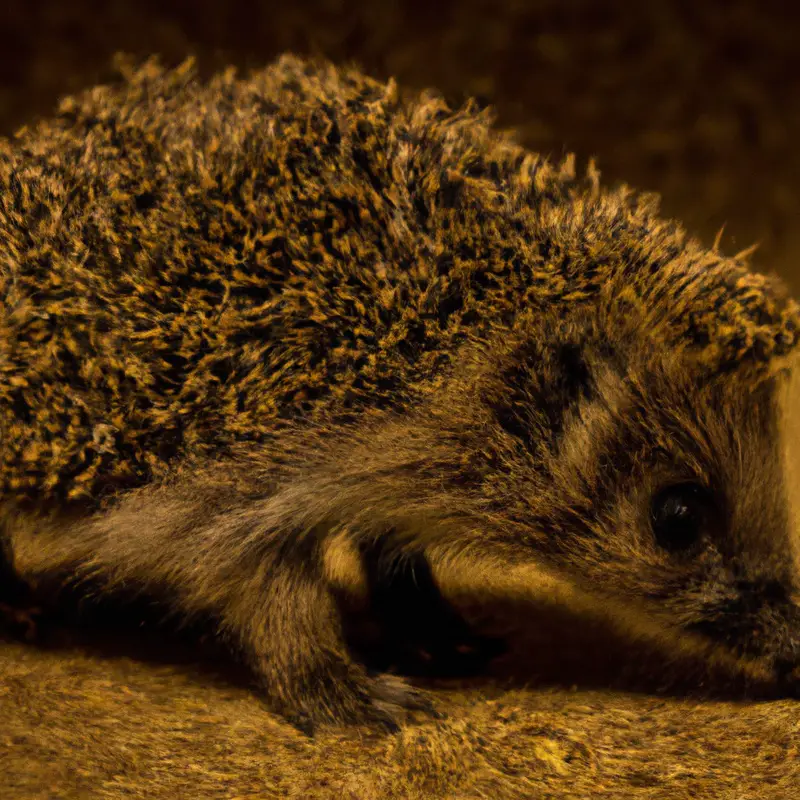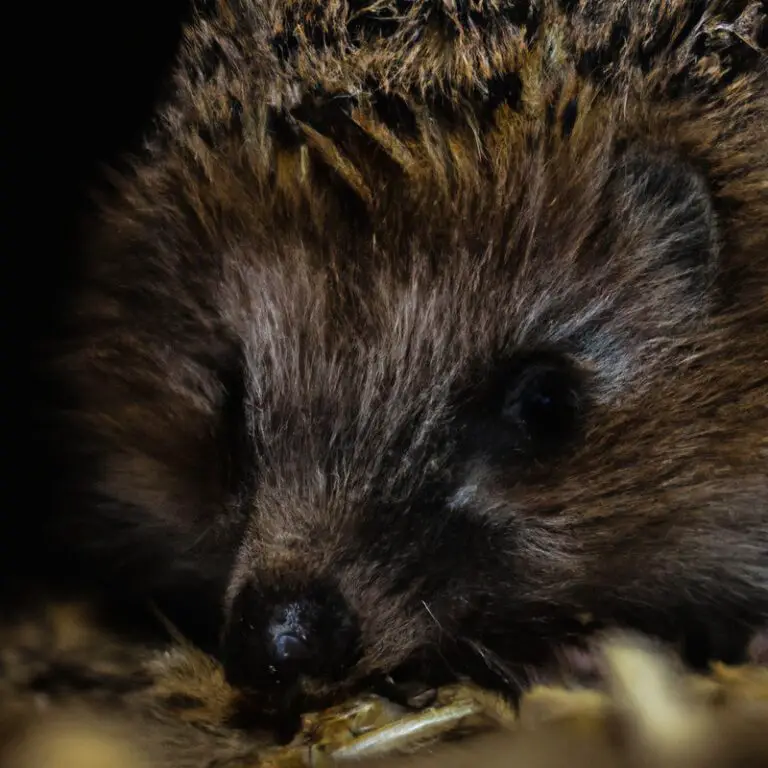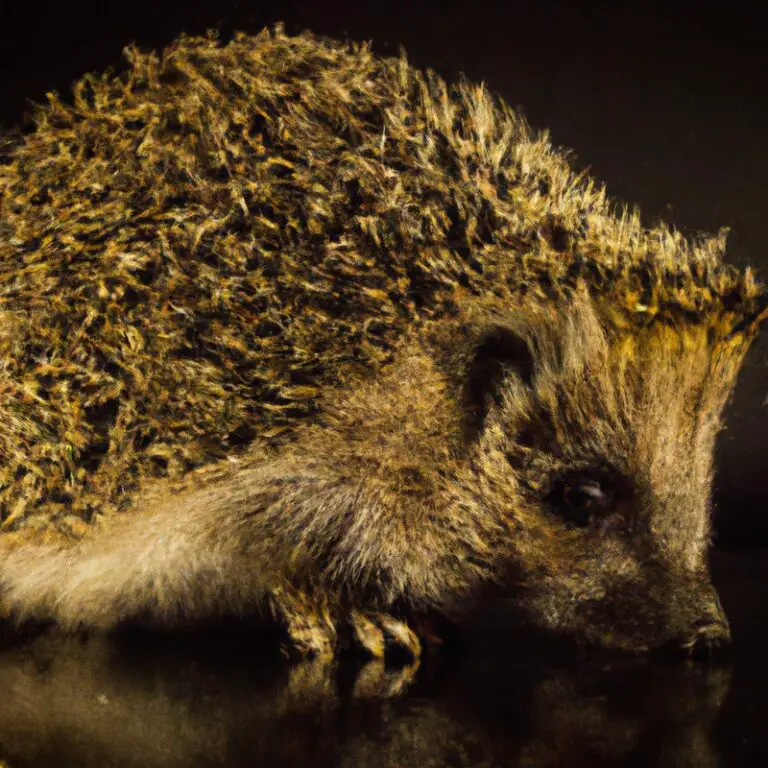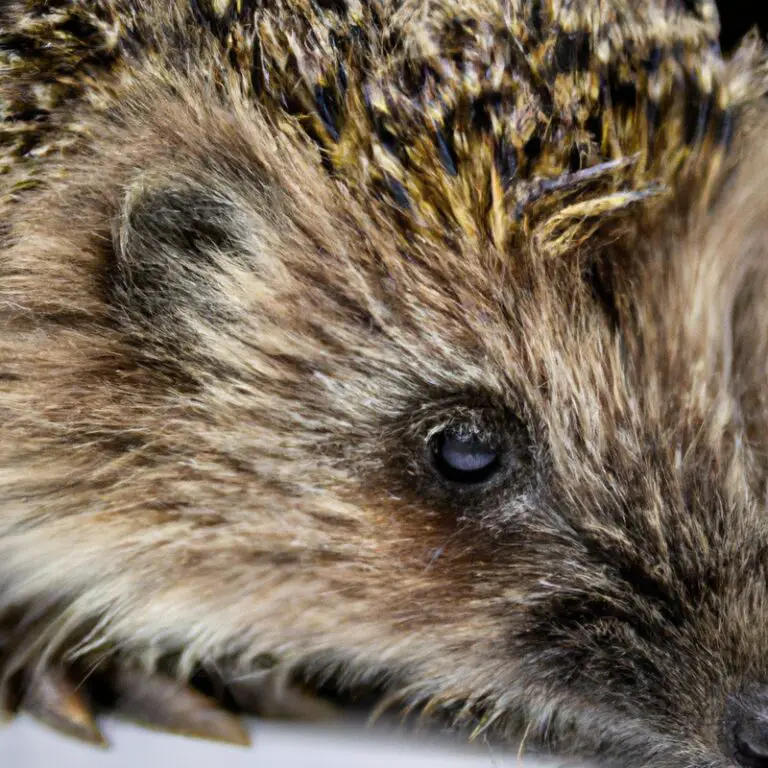What Is The Role Of Hedgehogs In Natural Pest Control?
Key Takeaways:
- Hedgehogs play a crucial role in natural pest control by consuming a variety of insects and small pests.
- Their diet includes harmful garden pests such as slugs, snails, and insects, helping to reduce their populations naturally.
- By attracting and supporting hedgehogs in garden areas, you can reduce the need for chemical pesticides and promote a healthier ecosystem.
- Creating hedgehog-friendly habitats, such as providing shelter and access to water, can encourage hedgehogs to thrive and effectively control pests in your garden.
Are you tired of battling pests in your garden or agricultural fields?
Meet your new secret weapon: the humble hedgehog.
These adorable spiky creatures are not just cute, but they also play a crucial role in natural pest control.
In this article, we will delve into the fascinating world of hedgehogs and learn how they can help keep those pesky insects and garden pests at bay.
From their hunting techniques to the types of pests they target, we will explore the benefits of using hedgehogs for sustainable and environmentally-friendly pest control.
So, grab a cup of tea and join us on this journey to discover the amazing role of hedgehogs in natural pest control.
| Topic | What is the role of hedgehogs in natural pest control? |
The Importance of Natural Pest Control
Natural pest control plays a vital role in maintaining ecological balance and reducing the reliance on harmful chemical pesticides.
Defining Natural Pest Control
Natural pest control refers to the use of natural methods and mechanisms to manage and prevent pest infestations. It involves the use of biological agents, such as predators and parasites, to control pests.
Additionally, natural pest control methods focus on promoting a balanced ecosystem, reducing the use of chemicals, and utilizing organic practices.
These methods can include crop rotation, companion planting, using pest-resistant varieties, and practicing good hygiene and sanitation in and around the area. By embracing natural pest control, we can protect the environment, promote biodiversity, and maintain the health and balance of our ecosystems.
Benefits of Natural Pest Control
Natural pest control offers several benefits.
- Environmentally friendly: It avoids the use of harmful chemicals, which can be detrimental to the environment.
- Healthier: Natural methods reduce the risk of exposure to toxic pesticides, making it safer for both humans and animals.
- Sustainable: It promotes a balanced ecosystem by maintaining the natural predator-prey relationships.
- Cost-effective: Natural pest control methods can be affordable and require less maintenance compared to chemical solutions.
- Long-term effectiveness: By addressing the root cause of pest problems, natural methods provide lasting control rather than temporary solutions.
Hedgehogs as Natural Pest Control Agents
Hedgehogs are natural pest control agents, helping to keep insect populations in check. They play a valuable role in maintaining a balanced ecosystem by reducing the presence of harmful pests.
Hedgehogs’ Role in Controlling Insect Pests
Hedgehogs play a vital role in controlling insect pests. They are natural predators and feed on a variety of insects, including slugs, snails, beetles, and worms.
By consuming these pests, hedgehogs help to maintain a balanced ecosystem and reduce the population of harmful insects in gardens and agricultural fields.
Their natural foraging behavior makes them effective and eco-friendly pest control agents. So, if you have hedgehogs in your area, consider them as valuable allies in maintaining a pest-free environment.
Hedgehogs’ Impact on Garden and Agricultural Pests
Hedgehogs play an important role in controlling garden and agricultural pests. They feed on insects, slugs, snails, and other small pests that can damage crops and plants.
By naturally preying on these pests, hedgehogs help to maintain a healthy balance in the ecosystem.
They are also beneficial in reducing the need for chemical pesticides, making them a sustainable and environmentally friendly choice for pest control. So, if you have a garden or agricultural area, having hedgehogs around can help keep those unwanted pests at bay.
How Hedgehogs Control Pests
Hedgehogs control pests through their hunting techniques and by targeting a variety of pest species.
Hunting Techniques of Hedgehogs
Hedgehogs have a unique set of hunting techniques that allow them to effectively control pests in their environment. These techniques include:
- Ambushing: Hedgehogs are skilled at hiding and waiting for their prey to come close. Once an opportunity presents itself, they quickly pounce and capture their target.
- Sniffing and Listening: Hedgehogs have an excellent sense of smell and hearing, which helps them detect the presence of pests such as insects, worms, and small rodents. They use these senses to locate their prey accurately.
- Digging: Hedgehogs are adept at digging, allowing them to uncover hiding insects or prey that burrow underground. Their sharp claws and strong snouts help them navigate and dig through soil.
- Rolling into a Ball: When threatened or encountering larger predators, hedgehogs display their unique defense mechanism by rolling up into a tight ball with their spines facing outward. This protects their vulnerable belly while warding off potential threats.
By employing these hunting techniques, hedgehogs play a vital role in maintaining the balance of ecosystems by controlling pest populations naturally.
Types of Pests Targeted by Hedgehogs
Hedgehogs have a natural instinct to hunt and feed on various pests, making them excellent pest controllers.
They primarily target insects like beetles, slugs, and snails, which can damage gardens and crops.
Additionally, hedgehogs also go after small rodents, such as mice and rats, helping to keep their populations in check.
This natural pest control service provided by hedgehogs helps maintain ecological balance and keeps harmful pests at bay.
So, if you have a hedgehog in your garden, consider it a valuable ally in pest management.
Benefits of Using Hedgehogs for Pest Control
Hedgehogs offer an environmentally friendly approach to pest control.
They act as a natural alternative to chemicals.
Environmentally Friendly Pest Control
Environmentally friendly pest control focuses on using natural and non-toxic methods to manage pests.
This approach avoids the use of harmful chemicals that can have negative impacts on the environment and human health.
Some examples of environmentally friendly pest control methods include introducing beneficial insects, using trap crops, practicing crop rotation, and implementing physical barriers.
These methods help to maintain a healthy ecosystem while effectively managing pests.
Hedgehogs as a Natural Alternative to Chemicals
Hedgehogs are a natural alternative to chemicals when it comes to pest control. They are excellent hunters and eat a wide variety of insects, slugs, and other pests that can damage crops or gardens.
Their spiky exterior also acts as a deterrent to larger pests like rabbits and deer.
By providing a habitat for hedgehogs in your garden, you can reduce the need for chemical pesticides and promote a healthy, balanced ecosystem. Plus, hedgehogs are cute and fun to watch!
Encouraging Hedgehogs in Your Garden
To encourage hedgehogs in your garden, create a hedgehog-friendly habitat and provide food and water sources.
Creating Hedgehog-Friendly Habitats
To create a hedgehog-friendly habitat in your garden, there are a few simple steps you can take. Start by providing shelter, such as leaf piles or a hedgehog house.
It’s also important to provide a clean and accessible water source, like a shallow dish of water.
Avoid using pesticides or chemicals in your garden, as these can be harmful to hedgehogs. Additionally, leaving patches of long grass or creating a wildflower meadow will give hedgehogs plenty of insects to eat.
Remember, small changes can make a big difference in creating a welcoming home for these adorable creatures!

Attracting Hedgehogs with Food and Water Sources
Attracting hedgehogs to your garden is easy with the right food and water sources. Here’s what you can do:
- Provide a shallow dish of freshwater that is easily accessible. Hedgehogs need water to stay hydrated, especially during dry periods.
- Offer a variety of food options, such as wet cat or dog food, mealworms, or specially formulated hedgehog food. Avoid feeding them bread, milk, or other unsuitable items.
- Place the food and water sources in a quiet, sheltered area of your garden. This will help hedgehogs feel safe while they eat and drink.
- Consider creating a hedgehog house or pile of leaves where they can hibernate or seek shelter. This will attract hedgehogs to your garden throughout the year.
Remember, hedgehogs are nocturnal creatures, so be patient and keep the food and water sources replenished. By providing these essentials, you’ll create a welcoming environment for hedgehogs in your garden.
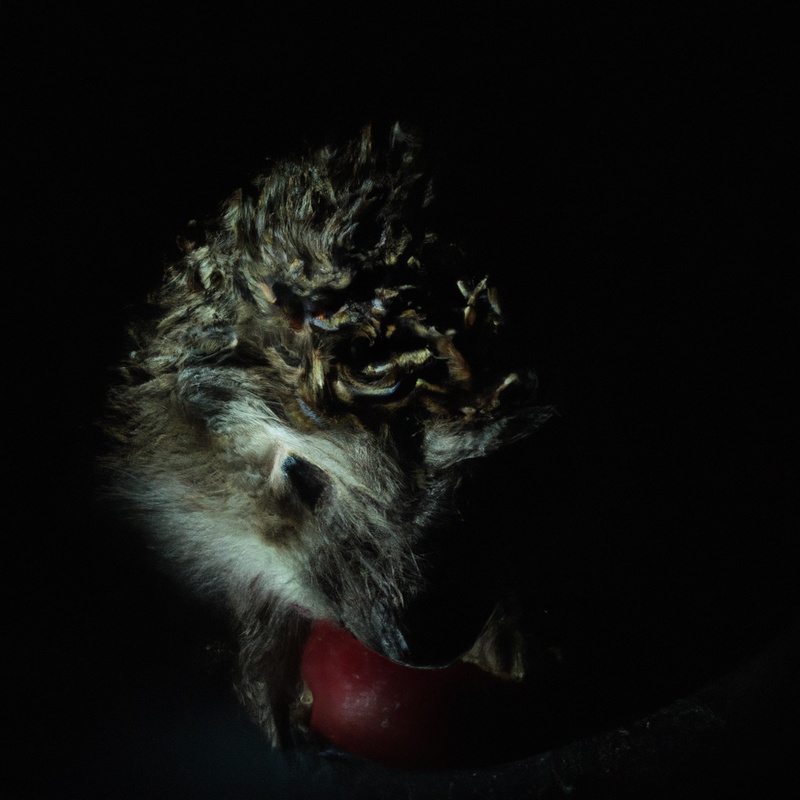
Protecting Hedgehogs for Sustainable Pest Control
Protecting hedgehogs is essential for maintaining sustainable pest control.
Avoiding Hedgehog Predators
Hedgehogs face various predators in their natural habitats.
To help hedgehogs avoid predators, it is important to create a safe environment for them.
One way to do this is by providing shelter such as dense vegetation or artificial Hedgehog houses.
Additionally, removing any potential hazards like open pits or deep water can also protect hedgehogs.
Finally, minimizing the use of pesticides and keeping domestic pets under control can reduce the risk of hedgehog predation.
Ensuring Hedgehog Conservation
Ensuring hedgehog conservation is essential for their survival. Here are some steps you can take to help protect hedgehogs:
- Create a hedgehog-friendly garden by providing shelter, such as log piles and hedgehog houses, and ensuring there are gaps in fences to allow hedgehogs to roam freely.
- Avoid using pesticides and chemicals in your garden, as these can be harmful to hedgehogs and their prey.
- Offer a varied diet by leaving out food such as wet cat or dog food, mealworms, or specific hedgehog food, along with a fresh bowl of water.
- Ensure hedgehogs can access your garden by removing any barriers or hazards, such as netting or deep ponds.
- Raise awareness by educating others about the importance of hedgehog conservation and the threats they face in their natural habitats.
By taking these steps, you can contribute to the protection and conservation of hedgehogs, ensuring their presence for future generations to enjoy.
Frequently Asked Questions (FAQs)
Can hedgehogs control all types of pests?
Hedgehogs are skilled hunters and can be effective in controlling certain types of pests. They have a natural diet that includes insects, snails, slugs, and other small invertebrates.
Hedgehogs can help keep populations of these pests in check.
However, it’s important to note that hedgehogs may not be effective against all types of pests, such as larger rodents or birds. Additionally, their effectiveness in pest control can vary depending on factors like habitat and availability of prey.
So while hedgehogs can contribute to natural pest control, they are not a one-size-fits-all solution.
Are hedgehogs compatible with other pest control methods?
Hedgehogs are indeed compatible with other pest control methods! They can be a helpful addition to your pest control strategy, especially for dealing with garden pests like slugs, snails, and insects. Hedgehogs are natural predators and feed on these pests, helping to reduce their populations.
Combining hedgehogs with other methods, such as organic pest repellents or companion planting, can provide a more comprehensive approach to pest control.
Just ensure that any chemical or poison-based pest control methods are avoided, as these can harm hedgehogs and other beneficial wildlife.
What are the potential challenges of using hedgehogs for pest control?
One potential challenge of using hedgehogs for pest control is that they may not target specific pests.
Hedgehogs are known to eat a variety of invertebrates, including insects, slugs, and snails.
While they can help reduce populations of these pests, they may also consume beneficial insects and other organisms.
Additionally, hedgehogs may not be able to effectively control pests in large-scale agricultural settings.
Their impact on pest populations may be limited, especially when compared to other pest control methods.
Final Verdict
Hedgehogs play a crucial role in natural pest control.
They are effective hunters of insect pests and can help to reduce populations of garden and agricultural pests.
By encouraging hedgehogs in our gardens and creating hedgehog-friendly habitats, we can harness their natural pest control abilities to minimize the need for harmful chemicals.
Hedgehogs offer an environmentally friendly and sustainable solution for pest management, while also promoting biodiversity.
Let’s protect and support these adorable creatures for a healthier and more balanced ecosystem.

